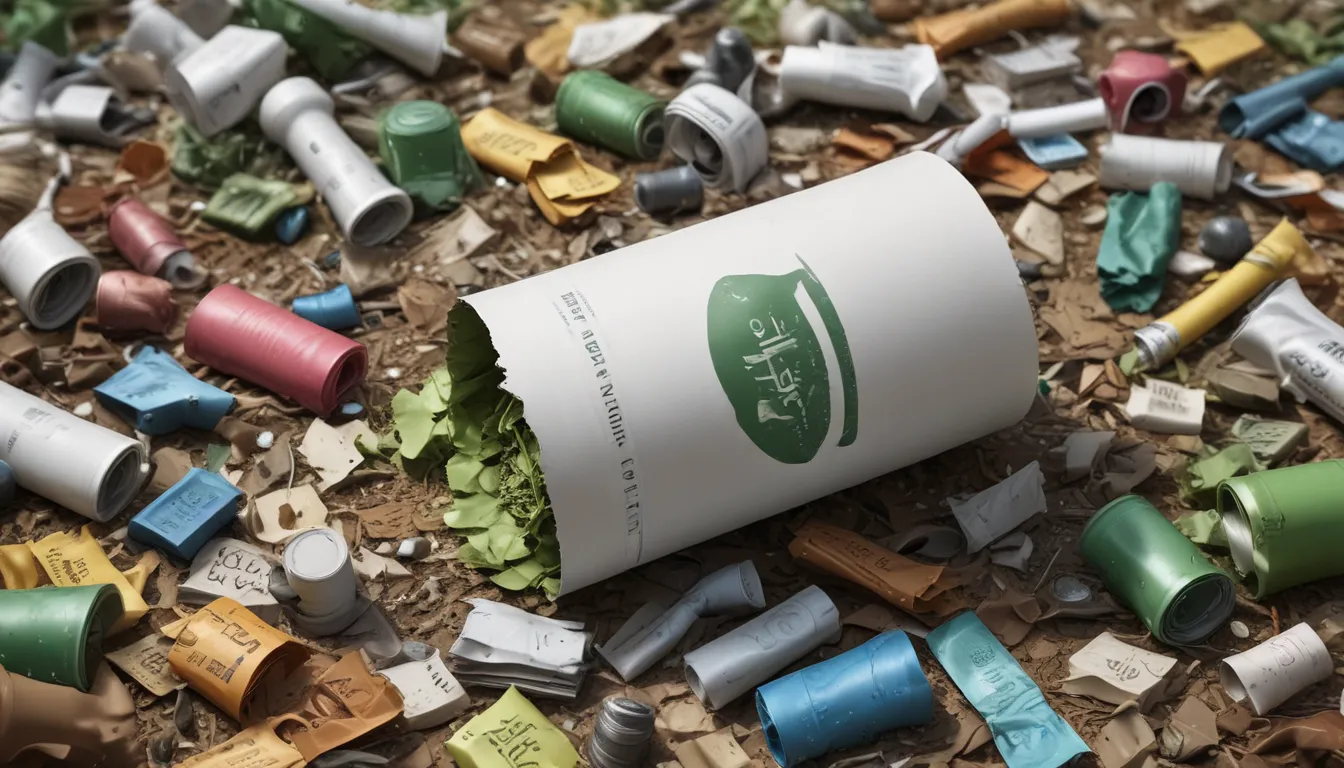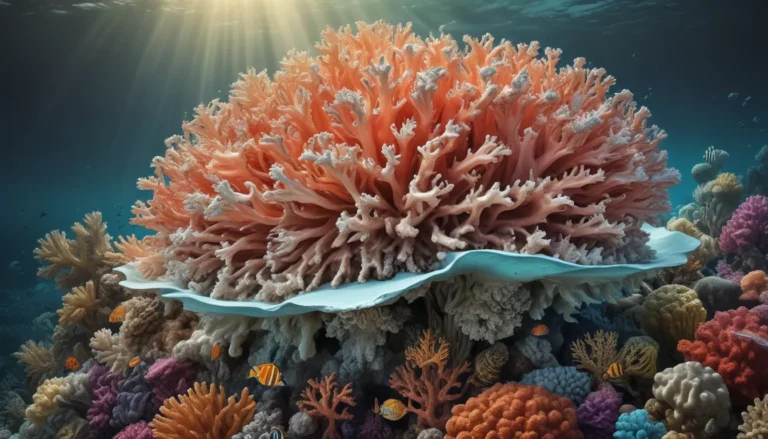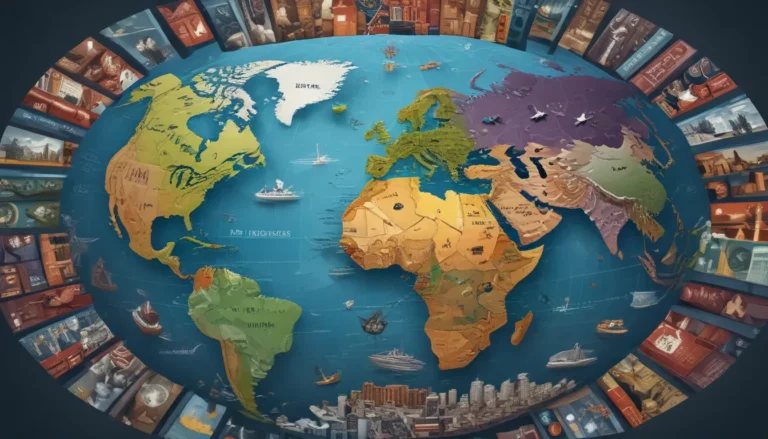A Note About Images: The images used in our articles are for illustration purposes only and may not exactly match the content. They are meant to engage readers, but the text should be relied upon for accurate information.
Are you curious about the impact of littering on our environment and communities? Littering is a global issue that affects us all, with serious consequences for wildlife, ecosystems, and public health. In this article, we will delve into 20 essential facts about littering, shedding light on its implications and how we can work together to combat this harmful practice. So, grab your favorite drink in a reusable cup and let’s explore the world of littering!
Understanding Littering
Littering is more than just tossing trash on the ground; it is the improper disposal of waste in public spaces, ranging from food containers to cigarette butts. By knowing the definition of littering, we can all contribute to a cleaner and healthier society.
The Global Impact of Littering
Did you know that in the United States alone, an estimated 51 billion pieces of litter are discarded annually? The consequences of littering go beyond the visual pollution of our environment; it can have disastrous effects on wildlife, air quality, and water sources. Moreover, the economic costs of cleaning up litter amount to billions of dollars each year that could be better utilized for essential public services.
Harm to Wildlife
Litter, such as plastic bags and aluminum cans, poses a life-threatening hazard to animals that mistake them for food or become entangled. Beyond just visual pollution, litter affects the delicate balance of ecosystems and jeopardizes the lives of all creatures in those habitats.
Contribution to Pollution
Non-biodegradable waste, like plastic bottles and bags, takes hundreds of years to decompose, polluting our landfills and oceans. Every piece of litter, no matter how small, adds up to millions of tons of waste improperly discarded each year, leaving a lasting impact on the environment for generations to come.
Economic Consequences
Cleaning up litter comes at a significant financial cost to local governments, diverting funds that could be better used elsewhere. In addition, litter negatively impacts tourism and property values, hindering the growth of communities. By reducing litter, we can maintain clean and thriving environments while saving on the substantial economic costs associated with litter cleanup.
The Link to Disease
Discarded litter on the ground creates breeding grounds for disease-carrying pests like rats and flies. These pests can spread infections to humans and animals, while harmful chemicals in litter can contaminate soil and groundwater, leading to long-term health issues.
Sustainable Solutions
From plastic pollution to food waste, litter takes years, even decades, to degrade naturally. Plastic bags can take up to 20 years to decompose, while cigarette filters can take a decade or more. By understanding the degradation times of various litter items, we can make more informed choices about waste disposal.
Plastic Pollution Crisis
Despite efforts to raise awareness, plastic litter remains a pressing issue, with disposable plastic products polluting our oceans and harming wildlife. Companies play a crucial role in reducing plastic waste by creating more sustainable packaging and educating consumers on proper disposal methods.
Combating Cigarette Butt Litter
Cigarette butts may be small, but their impact on the planet is significant. Millions of cigarette butts are discarded yearly, posing dangers to soil, waterways, and wildlife due to the chemicals in filters. Properly disposing of cigarette butts is crucial in reducing litter and protecting the environment.
Food Waste Dilemma
The excessive waste of edible food contributes to significant litter problems, emitting greenhouse gases as it decomposes in landfills. Food waste not only pollutes air and water sources but also attracts pests that can lead to health and sanitation issues. Responsible disposal of food scraps is essential to reducing litter and its environmental impact.
Addressing Microplastic Pollution
Microplastics, tiny pieces of plastic less than 5 mm in length, are contaminating our oceans and water sources, endangering marine life and human health. The presence of microplastics highlights the urgent need for more sustainable waste management practices to combat this growing threat.
Protecting Aquatic Ecosystems
Aquatic ecosystems are under threat from litter that can remain in oceans for centuries, harming marine life and disrupting ecosystems. As our population grows, the impact of non-biodegradable waste on aquatic ecosystems intensifies, highlighting the need for immediate action to safeguard these fragile environments.
Battling Illegal Dumping
Illegal dumping not only harms the environment but also poses health risks to communities. Illegal dumpsites are breeding grounds for disease-carrying pests, affecting both rural and urban areas worldwide. Long-term environmental damage outweighs any short-term benefits of illegal dumping, underscoring the importance of proper waste disposal methods.
Litter’s Role in Climate Change
Litter not only mars landscapes but also contributes to climate change by releasing harmful greenhouse gases as it decomposes. By obstructing waterways and polluting ecosystems, litter exacerbates environmental issues and poses a threat to global warming and pollution levels.
Enforcing Litter Laws
Efforts to minimize litter on our streets and protect the environment include implementing litter laws with fines and community service penalties for offenders. By holding individuals accountable for their actions, litter laws aim to create cleaner and safer communities that prioritize environmental preservation.
Promoting Litter Prevention
Raising awareness about the consequences of littering through educational campaigns, social media initiatives, and community events is essential in promoting litter prevention. Providing more waste disposal options, like additional trash bins in public areas and prioritizing recycling, encourages responsible waste management practices among individuals.
Encouraging Corporate Responsibility
Companies have a significant role to play in reducing litter and promoting sustainable waste management practices. By creating easily recyclable product packaging and educating consumers on proper disposal methods, businesses can contribute to reducing litter and protecting the environment.
Embracing Community Engagement
Community involvement through clean-up events and educational initiatives not only cleans up litter but also raises awareness of its harmful effects. By participating in local programs to reduce litter, communities can work together to create cleaner, safer environments for all.
Individual Action Matters
Each of us has the power to make a difference by taking responsible actions to reduce litter and protect our environment. While the problem of littering may seem overwhelming, small steps like proper waste disposal and promoting recycling can collectively make a significant impact on our surroundings and wildlife.
Joining Forces for a Cleaner Future
The impact of littering on our environment, wildlife, and communities is undeniable. By spreading awareness and actively combatting this issue, we can make a difference in creating a cleaner and healthier world for future generations. Let’s take a stand against littering, work together to reverse its harmful effects, and strive towards a greener and more beautiful environment. Every individual action counts, so let’s join forces and be the change we wish to see in the world.






